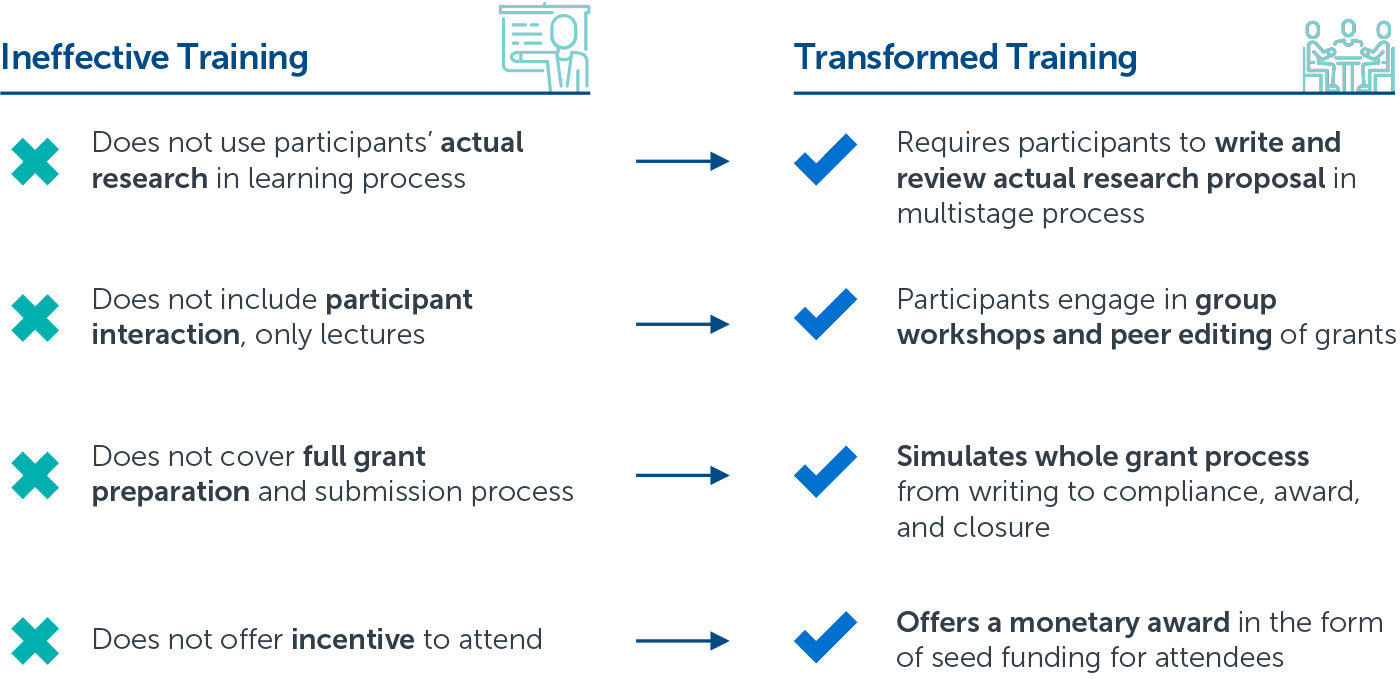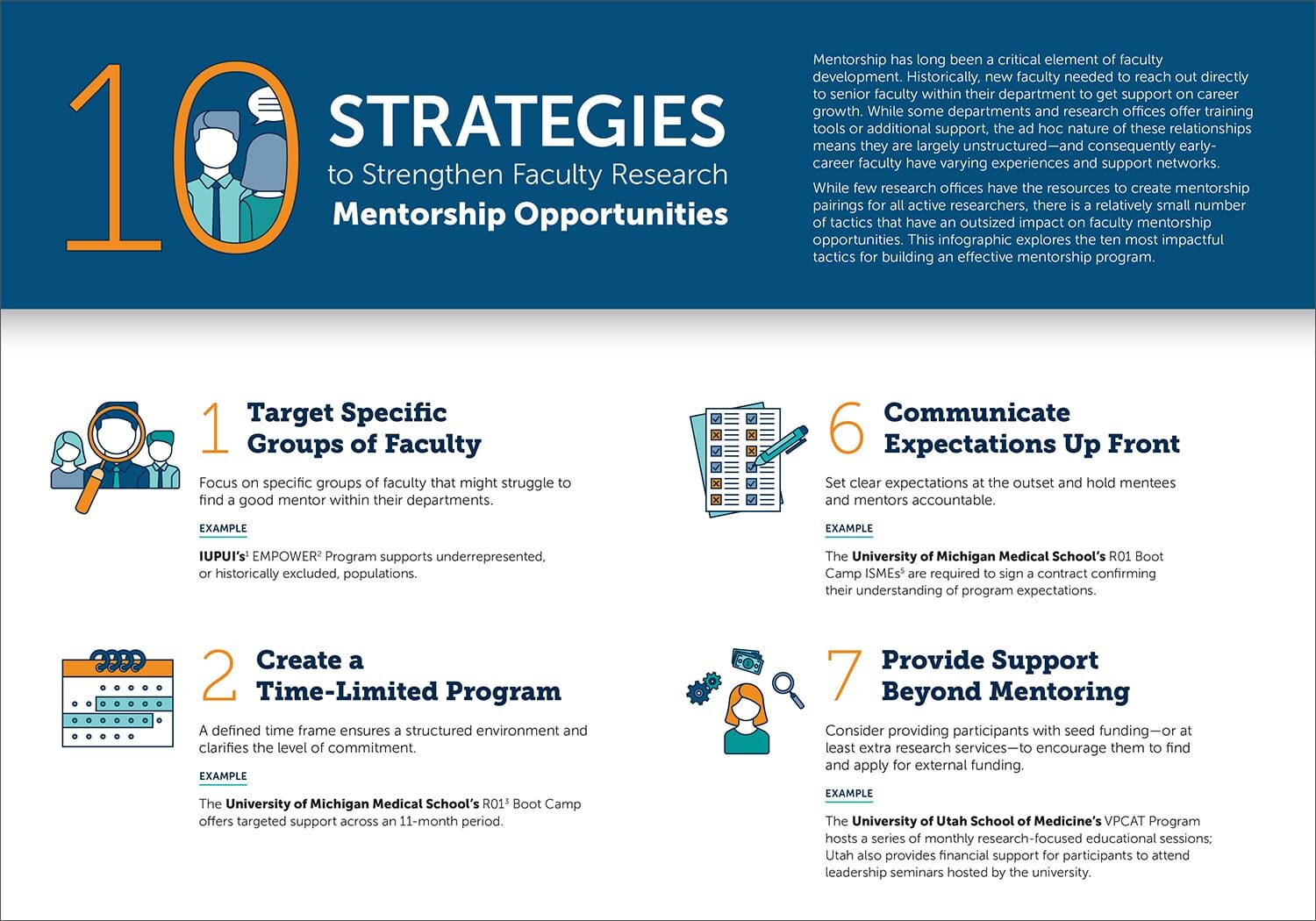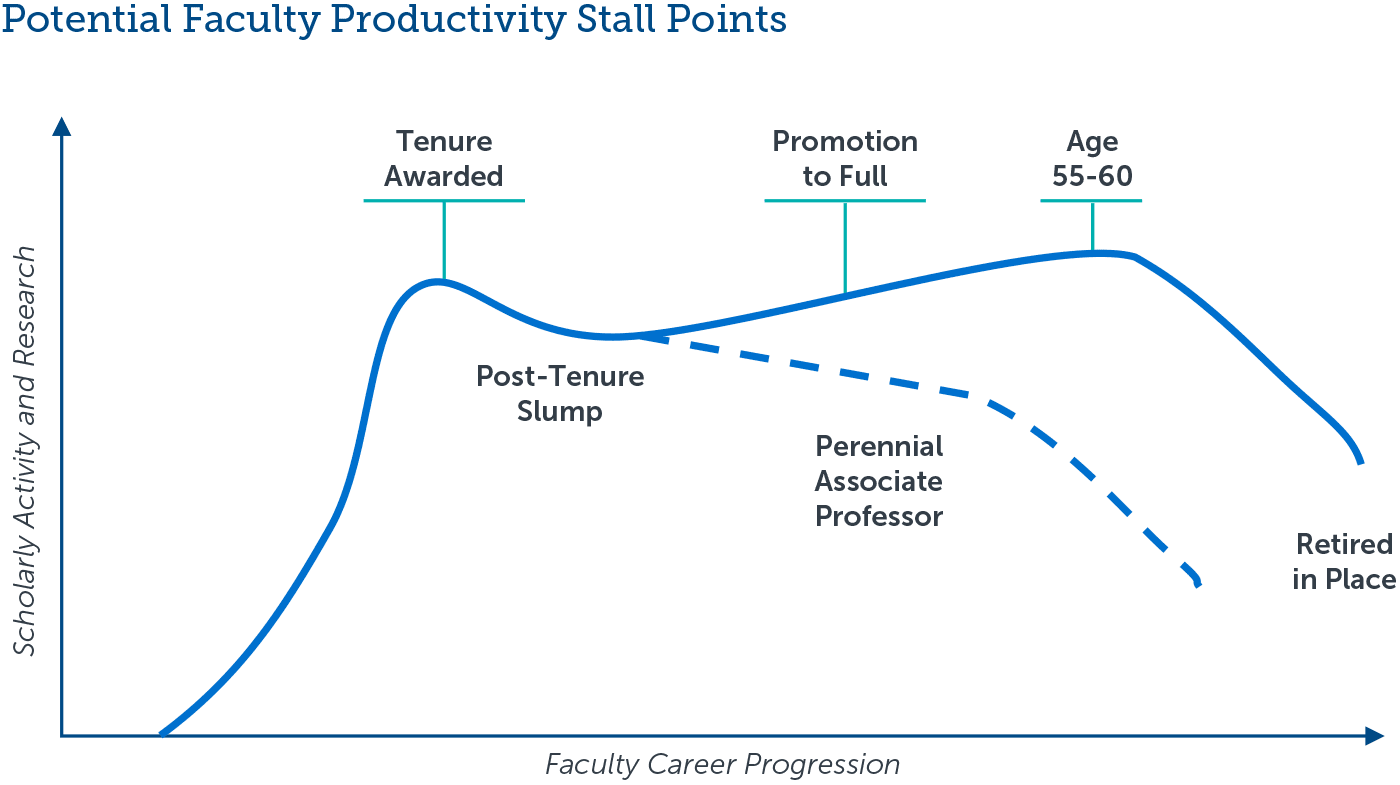Build a Research-Focused Faculty Development Program
Research is a core component of a faculty member’s role. Yet many faculty are not provided the same training and support necessary for conducting research as they receive for teaching. Chief Research Officers, therefore, must set faculty on the path to achieve their full research potential by helping them secure early-career awards and establish long-term research goals.

Communicate the new reality of research funding to faculty
The first step is to educate faculty on the rapid changes in the research funding environment. Faculty need structured and consistent information from the institution to recognize the urgent challenge of obtaining sustainable grant funding. This fosters a willingness in them to participate and collaborate in faculty development initiatives, regardless of their experience or tenure.
Learn how to explain the changing funding environment to faculty.

“Principal investigators don’t realize the magnitude of the challenge of obtaining research grants until they themselves have submitted 20 applications with no success.”
AVP for Research
Public R1 Institution
Rethink trainings to improve the quality of award applications
As the competition for grant funding continues to increase, faculty award submissions must improve in quality and sophistication to have any chance of succeeding. However, current trainings—often in the form of brown bag lunches or one-off lectures—often fail to engage faculty and provide useful information.
Institutions should therefore proactively strengthen faculty award applications by transforming their grant preparation training programs to improve their applicability and participation rate. Read our brief to learn the four characteristics of effective grant writing trainings.


Strengthen faculty research mentorship opportunities
While increasing proposal success rates is important, faculty research will remain limited without broader institutional support and preparation. One critical but frequently underdeveloped element of faculty support (especially for new researchers) is mentorship.
Many mentoring programs lack structure and processes to allow for the consistent improvement of faculty research skills and networks. The next step then is to refurbish mentorship opportunities to enhance early faculty experiences and cultivate support networks. Discover the 10 components of successful research mentoring programs in our research brief.


Build a sustainable research leadership pipeline
While mentorships can provide needed development for early-career faculty, more senior researchers frequently require additional support to avoid loss of research productivity. This is especially true for recently tenured faculty members, who may struggle to balance additional responsibilities, lack of growth opportunities, and long-term career concerns.


Target support services based on faculty development goals
In the end, each campus will need a different combination of support services based on their faculty composition, experiences, and institutional research goals. Prioritize those services that align best with your areas of greatest need.

This resource requires EAB partnership access to view.
Access the roadmap
Learn how you can get access to this resource as well as hands-on support from our experts through Strategic Advisory Services.
Learn More